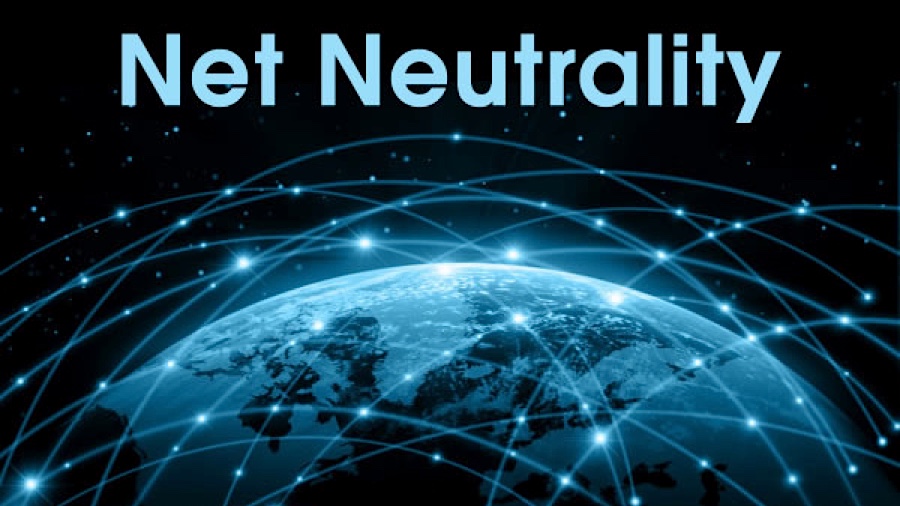US repeal of net neutrality will start mobile debate
Europe set to stay aloof from changes ... for now

The decision to repeal Obama’s Net Neutrality ruling has pitched the technology industry and consumer groups into a state of fury – unless you’re an ISP that is.
The broadband providers, rubbing hands with glee at the thought of the money that’s now theirs to make are, for the moment at least, statesman-like on the issue – promising nothing will change. But ranged against them are just about everyone else: the tech giants, the internet pioneers, consumer groups and just about every other member of society – 22 million objections to the decision were received by the FCC, objections that were rejected out of hand by the commission as they dismantled the regulatory apparatus to give the broadband providers what they want.
The crazy thing, of course, is that the move which, nominally at least, is designed to stimulate competition will do no such thing. Where’s the incentive to put more cable in the ground if you can charge more for the services that are already being offered to people.
Jaime Fink, the CPO at Mimosa Networks pointed out the main issue. “The biggest harm to the internet today comes from a fundamental lack of broadband competition. Fifty per cent of consumers in America have only one, or no choice at all of super-fast broadband. Without any competition and no guarantee of net neutrality, there is little pressure on the mega-ISPs to compete on price, improve their networks and ensure fair treatment to all types of traffic,” he says – although the whole point of abolishing net neutrality is precisely to do away with any notion of fair treatment for all types of traffic.
But he does envisage a way forward for consumers. “Since extending fiber to the majority of homes in the US is not cost-effective, new wireless technologies should be considered as an alternative. This approach enables competitive service providers to rapidly bypass the cable and DSL monopolies to challenge the mega-ISPs. This is only possible if the FCC takes action to open the radio airwaves fairly to ISPs of all size. A reform in radio spectrum policy will ultimately prove to be the best solution for our country to foster competitive options, extend broadband across the digital divide, and protect American consumers.”
It’s easy on this side of the pond to think of this as an American problem: if they want to give broadband providers free rein, that’s up to them. And it’s true that EU regulation provides greater protection for consumers. The Open Internet Regulation has held sway since 2015, and there’s been no mass lobbying to repeal it – and if large US corporations think that the EU would look favourably on their demands, they’d have a rude awakening – several tech giants have found that the EU has real teeth when it comes to regulation.
The UK, of course, will no longer be part of the EU within a couple of years but that’s not to say that we’d suddenly be free to do what we like. All existing European regulation will be carried over and, while we’d be free to amend it, there’s probably not much pressure to do so.
Sign up to the TechRadar Pro newsletter to get all the top news, opinion, features and guidance your business needs to succeed!
We have the same issue that the US (and nearly all other countries have) – not enough completion in the physical infrastructure. While it’s true that we can buy broadband services from a variety of providers, most of them use the same BT cabling.
But that’s not always going to be the case: the advent of 5G is going to change all that. So, within five or six years, mobile connectivity is going to be playing a big part in the future and the mobile operators are keen to play a part in the process.
Mobile future
So, while net neutrality is not really being discussed in Europe right now, certainly not to the extent that it is in the US, there is a debate about what sort of mobile market we want. Operators have struggled to manage the demands, a survey a few weeks ago, showed the extent of the problem – the demand for high quality video is making it difficult to manage traffic.
A statement from the GSMA shows the extent of the issue. “Net neutrality concerns the optimisation and prioritisation of traffic over mobile networks. Some argue that all traffic carried over a network should be treated equally. This stance, however, fails to acknowledge the impact that net neutrality rules can have on service quality for mobile users, the ability to support technical advances such as 5G and the Internet of Things and, more generally, the freedom to innovate and compete in the internet age.”
The association goes further: “Given limited network capacity, mobile network operators need the flexibility to differentiate between types of traffic to provide an optimal consumer experience. Driverless cars, telemedicine and smart homes will depend on managed delivery of data. Regulations should not hinder the development of innovative services by imposing a blanket prohibition of prioritised service delivery models. Regulation that limits operators’ flexibility to manage networks and offer a variety of service models is counterproductive and hinders innovation and consumer choice.”
We’re moving gradually into a new world: one not based around fixed lines and cables in the ground but around unseen radio waves. When we’re fully in that environment – maybe a decade for now, expect to see the net neutrality debate to hot up. The GSMA has its priorities clear: “Regulators should act when there are proven cases of anti-competitive misconduct, but should not impose net neutrality regulation without strong evidence.”